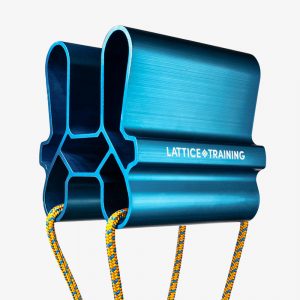Female Climber Series: Endurance During the Luteal Phase
Endurance During the Luteal Phase by Maddy Cope
There is a growing body of information out there concerning the high and low hormone phase and the types of exercise that might be better aligned with our physiology during these phases.
This is a headline we are seeing more of, but why and, what does this mean for climbers? Lattice coach and pro-climber Maddy is on the case;

So where has this come from?
During the luteal phase, both estrogen and progesterone are high and this has an effect on substrate metabolism (different sources of fuel we choose to burn in order to produce energy in the form of ATP).
When hormones are high our cells conserve glycogen and burn fats more readily during exercise: a state that has been termed “glycogen sparing”.
The fact that we burn fats more readily during exercise, and that they are used in the aerobic energy system, has led to the theory that performance in endurance exercise may be enhanced during the luteal phase.
**Although the change in substrate metabolism has been shown, there is no conclusive evidence of its effect on performance.**
What does this mean for climbers?
The first thing to consider is given that fats can only be used in the aerobic energy system, how much are we relying on this energy system when we climb?
The aerobic system is a relatively slow system when it comes to producing ATP and so when we do high-intensity exercise we tend to rely on our anaerobic energy systems.
Another way to think about this is that exercise done using solely the aerobic system should be sustainable, apart from when glycogen or fat stores become depleted (which would take a long time!), and this is rarely the case when we climb.
To conclude;
For route climbers with a focus on endurance training, this may be a good time to focus lower intensity endurance sessions.
BUT for strength, anaerobic, or aerobic power training the key take away from this theory is to fuel well with carbohydrates before sessions to help with glucose availability for anaerobic respiration.






